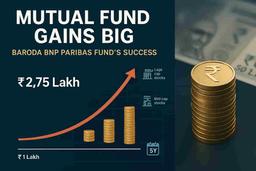India is experiencing a significant economic resurgence, outperforming global peers with an upwardly revised growth forecast from the IMF. Driven by a rapidly expanding middle class, rising incomes, and a young population, the country is poised to become the world's most dynamic consumer economy. Domestic consumption, accounting for nearly 70% of GDP, acts as a strong backbone, attracting global brands and signalling a long-term structural shift towards robust growth.
India is charting a remarkable course of economic resilience and resurgence amidst global uncertainty, with the International Monetary Fund (IMF) revising its growth forecast upwards. The country is consistently outperforming global peers, signaling the dawn of a new economic era driven by consumption.
Key drivers of India's Gross Domestic Product (GDP) growth include a strong demographic base, a large pool of skilled labor, and a burgeoning middle class with significant purchasing power. Projections indicate India's middle class, currently 31% of the population, could reach 38% by 2031 and an impressive 60% by 2047. This expanding segment fuels discretionary spending, making India a prime market for global brands across sectors like food, beverages, luxury fashion, automobiles, and FMCG.
The recent India-UK Free Trade Agreement (FTA), with the UK keen on market access for premium products, exemplifies this global interest. Despite potential trade headwinds, India's growth as a manufacturing hub and its large affluent middle class are strong. Domestic consumption, responsible for nearly 70% of India's GDP, serves as the economy's backbone, capable of withstanding external shocks from sanctions and trade restrictions.
Further reinforcing this positive outlook are comfortable foreign exchange reserves, a manageable current account deficit, and surging foreign investments, all indicating growing global trust in India's long-term economic trajectory. Rapid urbanisation, with the urban population expected to exceed 40% by 2030, and the presence of the world's largest youth population (median age 29) are also significant contributors. Tier-2 and Tier-3 cities are emerging as new consumption hubs, boosting demand for organised retail, malls, and electronics.
India's GDP has more than tripled from Rs 106.57 lakh crore in FY15 to an expected Rs 331 lakh crore in FY25. Capital markets have surged in tandem, with retail investor participation growing from 4.9 crore to 13.2 crore. The Nifty Consumption Index (TRI) has delivered strong returns, outperforming the Nifty 50 TRI.
This growth momentum is supported by increased rural and urban consumption, private capital expenditure, business expansion, and government spending. Favorable monetary easing and liquidity conditions are fostering robust credit growth. The thrust on consumption is expected to continue long-term, driven by intrinsic economic strengths.
Impact:
This news signifies a highly positive outlook for the Indian stock market. The robust domestic demand, expanding middle class, and strong economic indicators point towards sustained growth for companies, particularly those in consumer discretionary, retail, FMCG, automotive, and even manufacturing sectors. Investor confidence is likely to remain high, potentially driving market indices upward and attracting significant foreign investment. The focus on domestic consumption as a buffer against global slowdowns enhances the attractiveness of Indian equities for long-term investment. The trend suggests a shift in global investment focus towards economies with strong domestic demand drivers.
Rating: 9/10
Difficult Terms Explained:
- Economic uncertainty: When the future of the economy (like jobs, prices, and business growth) is unclear and unpredictable.
- Sluggish growth: When an economy is growing very slowly.
- Resilience: The ability of a country or economy to withstand or recover quickly from difficult conditions.
- Resurgence: A renewed popularity, use, or acceptance of something; a revival.
- International Monetary Fund (IMF): An international organization that works to foster global monetary cooperation, secure financial stability, facilitate international trade, promote high employment and sustainable economic growth, and reduce poverty around the world.
- Growth forecast: An estimation of how much an economy is expected to grow in the future.
- Global peers: Other countries that are similar to India in terms of economic size or development.
- Consumption economy: An economy where the primary driver of economic growth is the spending by individuals and households.
- Demographic base: The characteristics of a population, such as age, gender, income, and education.
- Skilled labour force: People who have the necessary education, training, and abilities to perform specific jobs.
- Middle class: A socio-economic group between the upper and working classes, typically having a higher income, education, and social status, with disposable income for non-essential goods.
- Purchasing power: The ability of consumers to buy goods and services.
- Discretionary spending: Money spent on non-essential items or services, above and beyond basic needs.
- MNCs (Multinational Corporations): Companies that operate in more than one country.
- FMCG (Fast-Moving Consumer Goods): Products that are sold quickly and at a relatively low cost, such as soft drinks, toiletries, and groceries.
- FTA (Free Trade Agreement): An agreement between two or more countries to reduce barriers to imports and exports among them.
- Tariffs: Taxes imposed on imported goods, usually to protect domestic industries or raise revenue.
- Affluent middle class: A segment of the middle class that has a higher income and greater spending capacity.
- Domestic consumption: The spending on goods and services by households within a country.
- Current account deficit: When a country's total imports of goods, services, and transfers are greater than its total exports.
- Foreign exchange reserves: Assets held by a country's central bank in foreign currencies.
- Urbanisation: The process where an increasing percentage of a population lives in cities and towns.
- Organised retail: Retail operations conducted by formally established businesses, typically larger stores with standardized practices.
- QSRs (Quick Service Restaurants): Restaurants where food is prepared and served quickly, like fast-food chains.
- Nifty Consumption Index (TRI): A stock market index that tracks the performance of companies in the consumption sector in India. TRI (Total Return Index) includes dividends reinvested.
- Capital markets: Markets where long-term debt (bonds) and equity (stocks) are traded.
- Monetary easing: Actions undertaken by a central bank to increase the money supply and lower interest rates, to stimulate economic activity.
- Liquidity conditions: The ease with which assets can be converted into cash or the availability of cash in the financial system.
- Credit growth: The increase in the amount of loans provided by financial institutions.
- Structural shift: A fundamental, long-term change in the way an economy or market operates.



